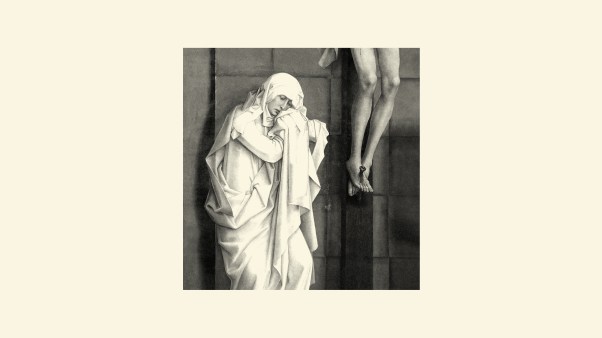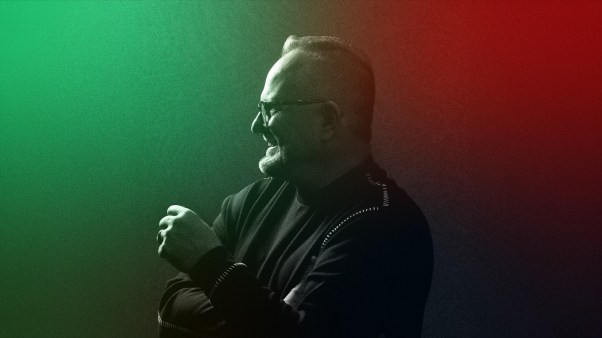Matthew Lee Anderson, author of the forthcoming
Earthen Vessels: Breathing New Life into a Broken Faith
and blogger at Mere Orthodoxy:Within the happy confident hope we have in Christ (Jesus is still Lord, and nothing can undo that), evangelicals need to expand their intellectual horizons. While this is a landmark decision, it comes amid a long shift in culture and philosophy. We need to look backward to discern what’s at the root of that trend, look inward to see the ways that we have been co-opted by it, and look a long ways forward to determine how we can work to reverse it.
Practically, I think we have relied too heavily on the will of the majority as our foundation for our legal actions. While political orders must on some level be representative of the people to be legitimate, our founding fathers set up a representative democracy for a reason. Without rejecting efforts like Proposition 8, politically conservative evangelicals should shift their focus toward equipping the next generation of leaders with the philosophical and theological training they need to affect society and government from the “top-down.” Majorities are unstable, and while traditional marriage has the upper hand now, it may not in 20 years.
Alan Chambers, president of Exodus International:
I believe that God is calling his church to a place far above the arguments surrounding what is sin and what isn’t. We cannot avoid the glaring scriptural truth that there is, and will always be, a right way and a wrong way concerning just about everything we can imagine. And, yet, I believe that our attitudes towards people (internal and external) are just as important as our positions on the issues at hand. So, when I first saw the news that Prop. 8 had been overturned, my very first thought was, “Dear Lord, please let the Christians who speak in response to this share your heart and not their judgment.”
We should respond with 100 percent grace and 100 percent truth. As Christians, we must constantly be sharing God’s best for people. He created us for a lot more than we, as humans, tend to settle for—in every area of our lives. Because gay marriage is less than God’s best for relationship, we need to equip ourselves to minister to those who will choose it and later realize it might not have been the best decision. I firmly believe that if we had spent as much money, time, and energy battling for people’s hearts as we did fighting against their agendas, the gay rights battle would look very different today.
Timothy George, founding dean of Beeson Divinity School of Samford University:
Proposition 8 was passed in California with the strong support of the Christian community, including Catholics, evangelicals, and (especially) the African American churches. The decision of Judge Walker could lead to a Supreme Court ruling as charged as Roe v. Wade. Christians who thought they would be able to just sleep through this issue will not be allowed to. At stake in the debate is the very nature of marriage itself. Thinking biblically does not allow us to regard marriage as merely prudential or preferential (I like strawberry, you like pistachio), but as a covenantal union of one man and one woman established by God for a purpose that transcends itself. Marriage is not a “right” to be defended or exploited but rather a union of one man and one woman offering their lives to one another in service to the human community. A gospel response to this judicial decision and the public battles it will generate requires humility, repentance, love, and forbearance. In other words, grace and truth, lots of both.
Andreas J. Köstenberger, author of
and professor of New Testament and biblical theology and director of Ph.D. studies at Southeastern Baptist Theological Seminary:The ruling shows that as Christians, we should not look for a political solution to the crisis surrounding marriage and the family in our culture. The only true and lasting solution is found in a return to our spiritual foundations. The Bible makes clear that marriage is God’s idea rather than a social contract that we are free to renegotiate based on changing social trends. But we can’t expect the unbelieving world or any government or judicial system to understand or reinforce that. For this reason we should focus our efforts not on swaying political opinion but on teaching people what the Bible says about God’s plan for marriage and the family.
Dale S. Kuehne, Bready Chair for Ethics, Economics and the Common Good at Saint Anselm College and author of
:There are several questions about the legal logic of this decision and where it might lead, yet it appears many outside observers have been left with a clear sense of what Christians are against, instead of what we’re for. Little wonder the world openly questions how the orthodox Christian belief that sexual relations should be confined to a marriage between one man and one woman could possibly benefit everyone. Too often we respond with anger, outrage, or a disillusioned silence instead of pointing out the wonder and fulfillment of the different relational path of gospel.
Andrew Marin, author of
and president of The Marin Foundation:We can continue to politically fight a drawn-out battle with a government that is not governed through an evangelical worldview, producing more casualties for Christ. Or we can learn right now what it means to live in relation to, and relationship with LGBT people as gay marriage is legalized—continuing to actively show Christ’s compelling nature regardless of state or national policy. The choice is ours.
Gerald R. McDermott, professor of religion at Roanoke College:
Christians should be concerned about the common good, and this is not for the common good. Social science has shown that children do best in a home with two parents of the opposite sex in a low-conflict marriage, and gay marriages make that impossible for their children and less likely for society generally. More children will be created by artificial sperm donation, which in many cases forever cuts the children off from knowing both their biological parents. Gay marriage will also encourage teens who are unsure of their sexuality to embrace a lifestyle that suffers high rates of suicide, depression, HIV, drug abuse, STDs, and other pathogens.
Scot McKnight, professor in religious studies at North Park University:
I wish Christians would cease using so much money and time to establish our Christian ethic through legal processes. Instead we need to witness by word and deed to an alternative reality in our churches. We need to tell a better story through our families. Whether our laws change or not, we are to love our neighbor as ourselves.
Jennifer Roback Morse, founder and president of the Ruth Institute:
“Have you not read that from the beginning the Creator made them male and female? (Matt. 19:4)” “In his image, he created them. Male and female he created them. (Gen 1:27)” Our culture cannot understand the point of gendered marriage, without an understanding of gender itself. Male and female are two different and complementary ways of imaging God and of being human. We must teach with conviction the goodness of God’s creation of male and female.
Jenell Williams Paris, professor of anthropology at Messiah College and author of the forthcoming
The End of Sexual Identity: Why Sex is Too Important to Define Who We Are
:The gospel invites believers to support marriages and families, including in their legal and institutional dimensions, an effort that will surely last beyond our lifetimes. Whether believers accept legal gay marriage or work to preserve marriage as a heterosexual institution, they should work with civility and with concern for the public good. An even more immediate challenge for those who believe marriage is properly between a man and a woman is to live with genuine love and concern for homosexual individuals and families in our local contexts.
Glenn T. Stanton, director of global family formation studies and global strategic development at Focus on the Family:
The gospel is deeply serious while Judge Walker’s decision is a jumbled mess of sloppy thinking and accusation. He asserts religion is the cause of violence against gays. Jesus, when asked a tough legal question about marriage, explained, “God created them male and female.” This dual identity of humanity is no small thing for us nor our Lord because male and female image the invisible God, creating a full human communion. But Judge Walker says, “Gender no longer forms an essential part of marriage.” The Christian’s allegiance is clear.
Sarah Sumner, dean of A.W. Tozer Theological Seminary:
In a democracy, Christians can love others best by voting for laws that uphold the truth as revealed by God. When a law lies by saying something forbidden by God is permissible in society, people are set up for long-term hurt. God’s universal laws are for the benefit and welfare of all people, not just Christians. It’s just as harmful for an unbeliever to be involved in same-sex sin as it is a Christ follower.
Mark Yarhouse, professor of psychology and endowed chair at Regent University:
I don’t know that there is one response to the Proposition 8 decision that will reflect the depth and breadth of the gospel in the life of believers today. A gospel response is shaped by many factors, including how one views Christ and culture. Some Christians will see appealing the decision as part of the gospel response, drawing upon legal avenues and hoping it will be overturned upon appeal. Other Christians will prayerfully consider alternatives to legal means to be a witness to a rapidly changing culture. I think younger Christians, in particular, are more likely to explore such alternatives.
Related Elsewhere:
Previous Christianity Today articles on same-sex marriage include: “Why the Proposition 8 Decision Matters” and “Is The Gay Marriage Debate Over?“








